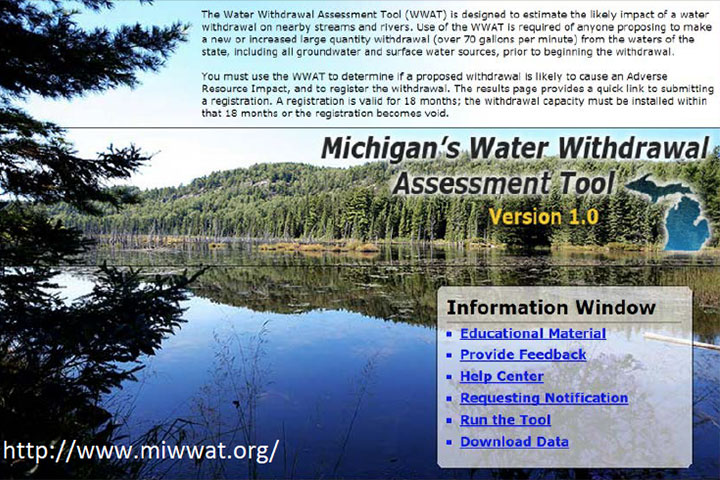Assessing the assessment tool: Developing modeling frameworks to evaluate hydraulic fracturing water withdrawals in Michigan
Assessing the assessment tool: Developing modeling frameworks to evaluate hydraulic fracturing water withdrawals in Michigan
Assessing the assessment tool: Developing modeling frameworks to evaluate hydraulic fracturing water withdrawals in Michigan
Program: Water Center U-M Capacity Building Grants
All Water Center U-M Capacity Building Grants projects »

Investigators
Brian Ellis, U-M Civil and Environmental Engineering
Avery Demond, U-M Civil and Environmental Engineering
Project Summary
Recent high-volume hydraulic fracturing activity in Michigan has drawn attention to inadequacies of Michigan’s water withdrawal assessment tool in capturing the impact of transient, large-volume water withdrawals on nearby streams. Large quantity groundwater withdrawals may reduce flow in groundwater-fed streams, possibly resulting in impaired stream water quality and negative impacts on aquatic organism health. As such, the State of Michigan requires that applicants seeking to develop wells for large-volume water withdrawals use an online screening tool (WWAT) to evaluate potential adverse resource impacts on streams prior to permitting a new well.
The goal of this project is to assess the adequacy of the online screening tool to evaluate the impacts of hydraulic fracturing-related water withdrawals on surface water bodies and residential water supply wells. The project team will examine a field site in northern Michigan where a proposed withdrawal of up to 210 million gallons of water is planned in conjunction with the hydraulic fracturing of six natural gas wells in the Utica-Collingwood shale. A key output of this study will be the development of a detailed hydrologic model to investigate the impact of the proposed withdrawals on local freshwater resources.
Two outcomes resulting from this modeling effort will be: (1) evaluation of the effectiveness of the existing water withdrawal assessment tool in predicting adverse resource impacts associated with short-term large quantity water withdrawals and (2) incorporation of cutting-edge modeling tools in U-M freshwater curriculum. This study may have an immediate impact by helping to guide the State in its efforts to improve the WWAT to better capture the impact of transient, high-volume water withdrawals. Furthermore, this assessment may spur other states or organizations concerned with the health of their sensitive freshwater ecosystems to investigate similar water withdrawal activities.